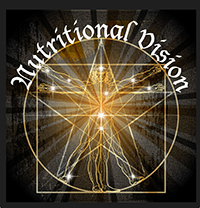Published on GreenMedInfo (http://www.greenmedinfo.com)
Dietary intake of B vitamins may affect the occurrence of age-related lens opacities. [1]
GreenMedInfo Summary
Abstract Title:
The Association of Dietary Lutein plus Zeaxanthin and B Vitamins with Cataracts in the Age-Related Eye Disease Study: AREDS Report No. 37.
Abstract Source:
Abstract Author(s):
Tanya S Glaser, Lauren E Doss, Grace Shih, Divya Nigam, Robert D Sperduto, Frederick L Ferris, Elvira Agrón, Traci E Clemons, Emily Y Chew,
Article Affiliation:
Tanya S Glaser
Abstract:
PURPOSE: To evaluate whether dietary intake of luteiin/zeaxanthin and B vitamins is associated with cataract prevalence and incidence.
DESIGN: Clinic-based, baseline cross-sectional and prospective cohort study designs.
PARTICIPANTS: Three thousand one hundred fifteen patients (6129 eyes) enrolled in the Age-Related Eye Disease Study 55 to 80 years of age followed up for mean of 9.6 years.
METHODS: Participants completed baseline food frequency questionnaires. Baseline and annual lens photographs were graded centrally. Multivariate models controlling for previously identified risk factors for cataracts tested for the association of cataracts with reported dietary intake, using the lowest quintile as reference.
MAIN OUTCOME MEASURES: Cataract surgery, cataract status (type and severity) at baseline, and development of cataracts.
RESULTS: At baseline, increased dietary riboflavin and B12 were associated inversely with nuclear and cortical lens opacities. In comparisons of persons with and without cataract, persons with the highest riboflavin intake versus those with the lowest intake had the following associations: mild nuclear cataract: odds ratio (OR), 0.78; 95% confidence interval (CI), 0.63-0.97; moderate nuclear cataract: OR, 0.62; 95% CI, 0.43-0.90; and mild cortical cataract: OR, 0.80; 95% CI, 0.65-0.99. For B12, the results were: mild nuclear cataract: OR, 0.78; 95% CI, 0.63-0.96; moderate nuclear cataract: OR, 0.62; 95% CI, 0.43-0.88; and mild cortical cataract: OR, 0.77; 95% CI, 0.63-0.95. Highest dietary B6 intake was associated with a decreased risk of moderate nuclear lens opacity developing compared with the lowest quintile (OR, 0.67; 95% CI, 0.45-0.99). Highest dietary intake levels of niacin and B12 were associated with a decreased risk of development of mild nuclear or mild cortical cataracts in participants not taking Centrum (Pfizer, New York, NY) multivitamins. For participants taking multivitamins during the study, the highest intake of dietary folate was associated with an increased risk of mild posterior subcapsular lens opacity development. No statistically significant associations were found between lutein plus zeaxanthin intake and presence at baseline or development of nuclear or cortical lens opacity outcomes.
CONCLUSIONS: These findings are consistent with earlier studies suggesting that dietary intake of B vitamins may affect the occurrence of age-related lens opacities. Further investigations are warranted.
Article Published Date : Jun 30, 2015
Study Type : Human Study
Additional Links
Substances : B-complex : CK(278) : AC(32) [2], Lutein : CK(261) : AC(46) [3], Zeaxanthin : CK(151) : AC(23) [4]
Diseases : Cataract : CK(196) : AC(61) [5], Eye Diseases : CK(896) : AC(170) [6], Macular Degeneration : CK(207) : AC(34) [7]
Links:
[1] http://www.greenmedinfo.com/article/dietary-intake-b-vitamins-may-affect-occurrence-age-related-lens-opacities
[2] http://www.greenmedinfo.com/substance/b-complex
[3] http://www.greenmedinfo.com/substance/lutein
[4] http://www.greenmedinfo.com/substance/zeaxanthin
[5] http://www.greenmedinfo.com/disease/cataract
[6] http://www.greenmedinfo.com/disease/eye-diseases
[7] http://www.greenmedinfo.com/disease/macular-degeneration
[8] http://www.greenmedinfo.com/flag/flag/favorites/121420?destination=print%2Farticle%2Fdietary-intake-b-vitamins-may-affect-occurrence-age-related-lens-opacities&token=13b7fc62e39a6e8aeadc1e08d441534a
[9] http://www.greenmedinfo.com/print/article/dietary-intake-b-vitamins-may-affect-occurrence-age-related-lens-opacities
[10] http://www.greenmedinfo.com/printmail/article/dietary-intake-b-vitamins-may-affect-occurrence-age-related-lens-opacities
[11] http://www.greenmedinfo.com/printpdf/article/dietary-intake-b-vitamins-may-affect-occurrence-age-related-lens-opacities
![]() Click Here to Download or Print
Click Here to Download or Print

No Comments Yet